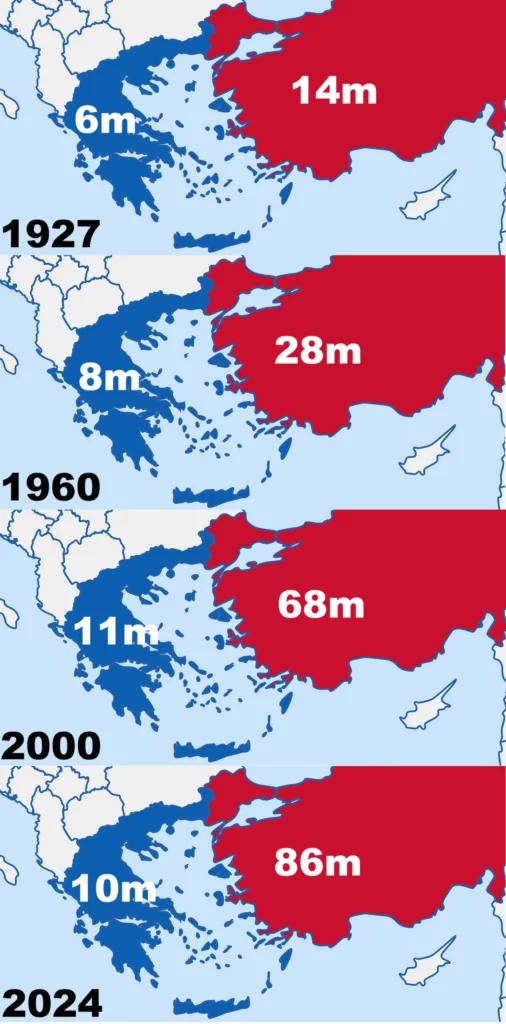Understanding the Tensions Between Greece and Turkey

Introduction
The geopolitical relationship between Greece and Turkey is a complex tapestry woven from a rich history marked by rivalry, conflict, and moments of diplomacy. As both nations continue to navigate a series of territorial disputes, particularly in the Aegean Sea and Eastern Mediterranean, understanding the importance of these tensions can provide insights into regional stability and international relations.
Historical Context
The historical animosity between Greece and Turkey dates back to the Ottoman Empire’s dominance over Greek territories, leading to the Greek War of Independence in the 19th century. This foundational conflict set a precedent for ongoing disputes, especially regarding the sovereignty of various islands and territorial waters. The establishment of the Republic of Turkey in 1923 further entrenched these divides, resulting in decades of fluctuating diplomatic ties, some periods of outright military conflict, as seen in the Cyprus War of 1974.
Recent Developments
Recent years have seen a resurgence of tensions, particularly in the context of energy exploration in the Eastern Mediterranean. Both countries have laid claim to maritime boundaries rich in hydrocarbons, leading to an increase in military posturing and rhetoric. In 2020, the discovery of significant natural gas reserves near Cyprus intensified competition, prompting Turkey to send exploration vessels into contested waters, which Greece has perceived as an infringement on its territorial rights. Meanwhile, NATO involvement has added another layer, as both are members but have found themselves at odds over national interests.
Diplomatic Efforts
Despite the rising tensions, there have been attempts at diplomacy. European Union interventions and meetings between leaders have sparked limited dialogues aimed at de-escalation. The most recent talks, aimed at resolving maritime boundaries and other contentious issues, took place in 2021, although progress has been slow. International observers caution that while negotiation is preferable, underlying grievances must be addressed to achieve a lasting resolution.
Conclusion
The ongoing tensions between Greece and Turkey highlight the fragility of international peace in the region and the potential for conflict should diplomatic efforts falter. As energy resources become increasingly significant and both nations navigate their national identification and pride, the need for a balanced and fair dialogue is more crucial than ever. Observers suggest that international mediation, along with sincere willingness on both sides to compromise, may offer the best hope for a harmonious future across the Aegean.
